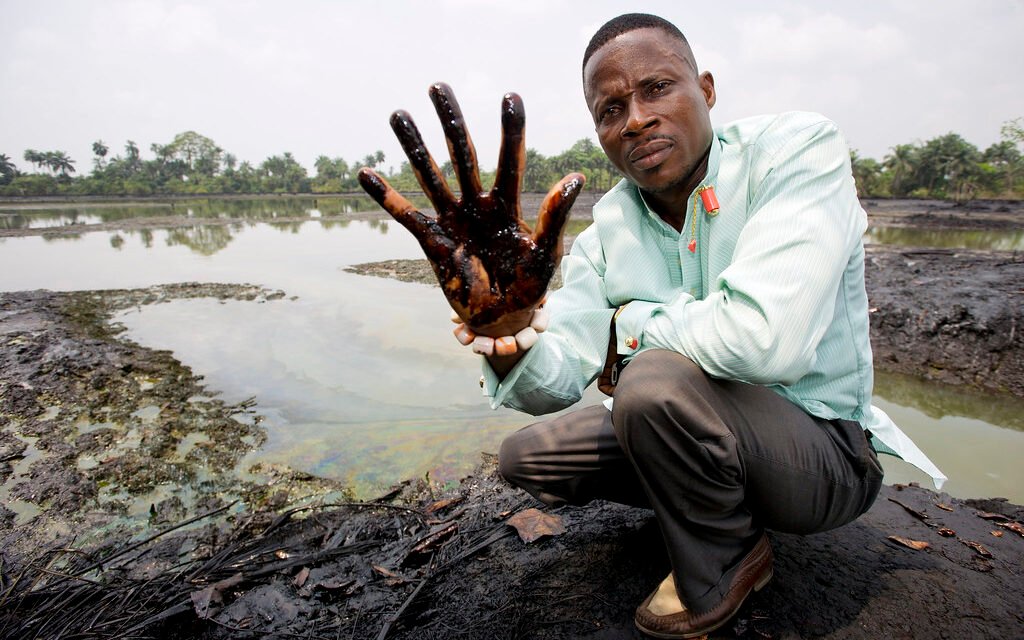Shell Faces Legal Battle Over Nigerian Oil Spills after The high court in London has ruled that over 13,000 Nigerian farmers and fishers from the Ogale and Bille communities in the Niger Delta can bring legal claims against Shell for chronic oil pollution of their water sources. The ruling by Mrs Justice May marks a significant development in the eight-year struggle for justice against the oil giant.
The court found it arguable that the pollution fundamentally breached the villagers’ right to a clean environment under the Nigerian constitution and the African Charter on Human and People’s Rights. Importantly, claims under these rights have no limitation period, challenging Shell’s attempts to evade responsibility based on timing.
Shell’s Nigerian subsidiary, the Shell Petroleum Development Company of Nigeria (SPDC), has accepted responsibility for the spills it caused, stating that it compensates affected parties in accordance with relevant Nigerian regulations and remediates all spills from its assets, regardless of the cause. However, Shell plc denies owing a duty of care directly to the claimants.
Matthew Renshaw, the international team partner at Leigh Day, the law firm representing the villagers, emphasized the significance of the ruling. He stated, “This ruling is a significant moment in the eight-year battle by the Ogale and Bille communities to get Shell to take responsibility for the oil pollution that has blighted their land.”
Despite the court ordering the identification of specific spills causing damage, Shell claims that the claimants failed to pinpoint the spills. Renshaw countered, stating, “We now hope to move without further delay towards a trial, where our clients’ claims for a full cleanup and compensation for the destruction of their way of life can be fully heard.”
This legal battle is not new; three years ago, the Supreme Court unanimously ruled that Shell plc (the UK-based parent company) could be legally responsible for the pollution caused by its Nigerian subsidiary. However, the case has continued in a series of legal disputes between Shell and the claimants.
A Shell spokesperson, responding to the recent judgment, highlighted the rampant oil theft in the Niger Delta as a major source of pollution, emphasizing that litigation does little to address the root cause. The company asserts its commitment to cleaning up and remediating areas affected by spills, working closely with regulators, local communities, and other stakeholders.
The ruling paves the way for a trial, scheduled for December 12 and 13, where the claimants will present their case. If successful, it would be the first time in legal history that a UK multinational is found to have breached a community’s right to a clean environment.
Shell’s denial of responsibility for the oil spills in Nigeria contrasts with the claims of over 13,000 residents seeking compensation for the loss of livelihoods and damage caused by the spills. The legal battle underscores the complex issues surrounding oil production in the Niger Delta, with Shell emphasizing oil theft and criminality as major sources of pollution.
While Shell maintains its intent to remain in Nigeria, the legal proceedings highlight the broader environmental and human rights challenges posed by oil extraction in the region. The outcome of this case could set a precedent for holding multinational corporations accountable for environmental damage caused by their subsidiaries abroad, marking a crucial step in the fight for justice and environmental protection.
Photo: Marten van Dijl

Looking back on my two decades in this field, I’m still as committed as ever to telling important stories and getting people to care about the Earth. Outside of writing, I work with Environmental groups that are trying to make things better for the environment and have a positive impact.










